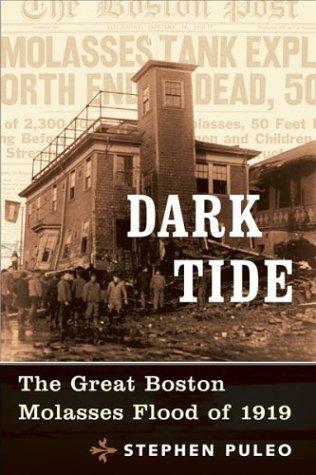

Most ebook files are in PDF format, so you can easily read them using various software such as Foxit Reader or directly on the Google Chrome browser.
Some ebook files are released by publishers in other formats such as .awz, .mobi, .epub, .fb2, etc. You may need to install specific software to read these formats on mobile/PC, such as Calibre.
Please read the tutorial at this link: https://ebookbell.com/faq
We offer FREE conversion to the popular formats you request; however, this may take some time. Therefore, right after payment, please email us, and we will try to provide the service as quickly as possible.
For some exceptional file formats or broken links (if any), please refrain from opening any disputes. Instead, email us first, and we will try to assist within a maximum of 6 hours.
EbookBell Team

4.4
92 reviewsIn this volume, Puleo, a contributor to American History magazine, sets out to determine whether the collapse of a molasses tank that sent a tidal wave of 2.3 million gallons of the sticky liquid through Boston's North End and killed 21 people was the work of Italian anarchists or due to negligence by the tank's owner, United States Industrial Alcohol. Getting into the minds of the major players in the disaster-USIA suits, victims, witnesses, North End residents, politicians-he re-creates not only the scene but also the social, political and economic environments of the time that made the disaster more than just an industrial accident. While the collapse's aftermath is tragic, the story itself is not exactly gripping. More interesting are the tidbits of Boston's and America's history, such as the importance of molasses to all U.S. war efforts up to and including WWI, which Puleo uses to put the tank collapse in the context of a very complex time in U.S. history. The most striking aspect of this tale is the timeliness of the topics it touches on. Describing Americans being persecuted because of their ethnicity, a sagging economy boosted by war, and terrorism on U.S. soil that results in anti-immigration laws and deportations, Puleo could just as easily be writing about current events as about events in 1919. Overall, this is another piece in the jigsaw puzzle that is Boston's long and rich history. Photos.
Copyright 2003 Reed Business Information, Inc.
In January, 1919, a fifty-foot tank filled with molasses exploded, sending waves of viscous goo through waterfront Boston and killing twenty-one people. Were Italian anarchists to blame or was it negligence by the tank's owner, the United States Industrial Alcohol company? Such matters form the crux of Puleo's account, which is narrated with gusto (and sometimes too much gusto: one victim has molasses "clinging to his private parts, like an army of insects that just keep coming"). Molasses was a vital commodity at the time, used in rum manufacture (the tank was full to the brim to cash in on pre-Prohibition demand), and it had been important in the production of First World War munitions. Puleo overreaches in claiming the story of the flood as a "microcosm of America"—an almost obligatory conclusion in this sort of history—but his enthusiasm for a little-known catastrophe is infectious.
Copyright © 2005